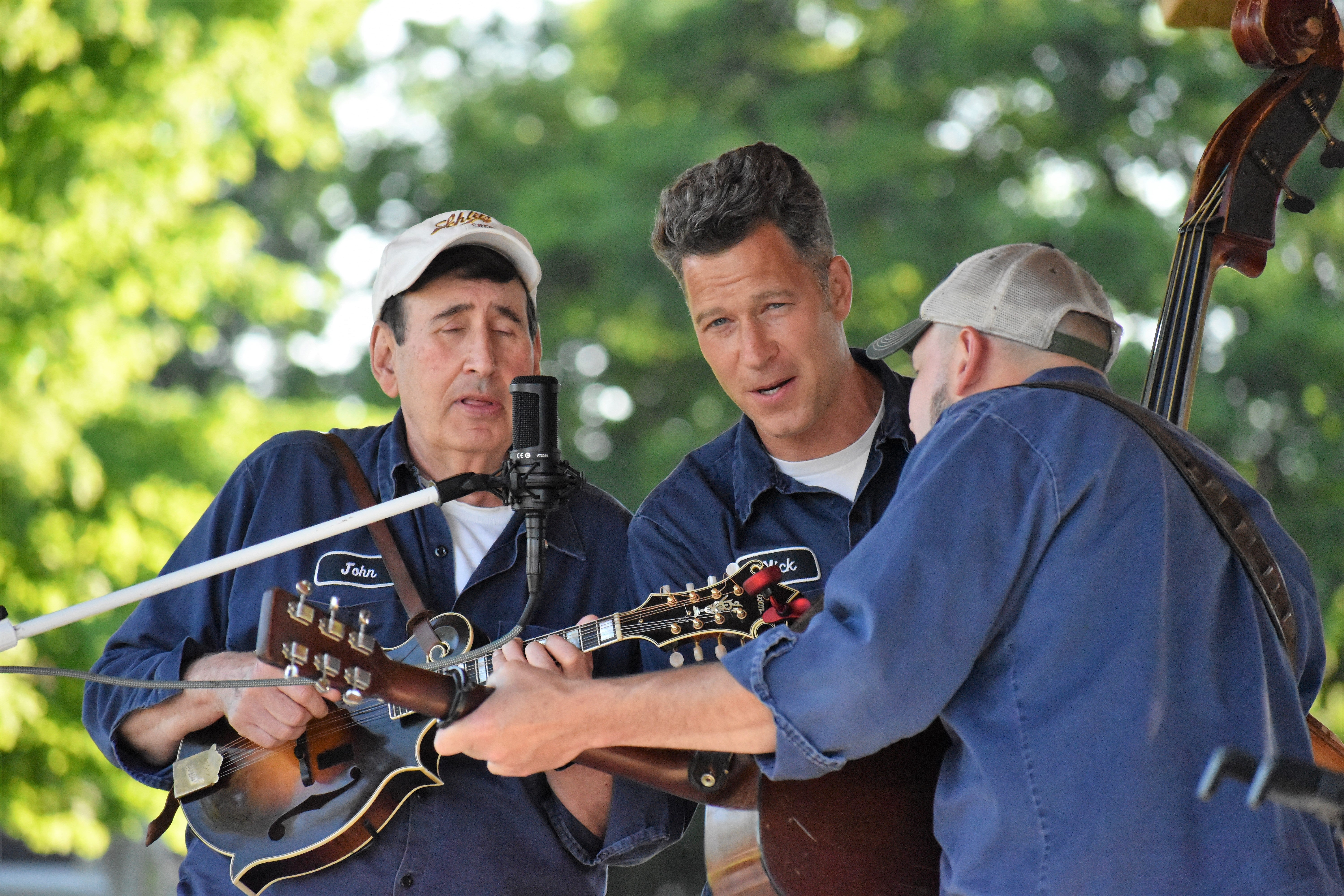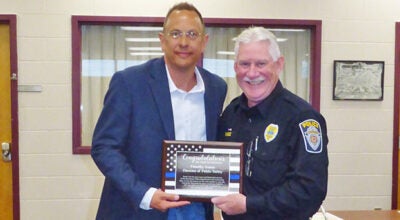Baccalaureate degree legislation out of committee
Published 10:00 pm Wednesday, June 8, 2011
Southwestern Michigan College President Dr. David Mathews received good news Wednesday from state Rep. Aric Nesbitt, R-Lawton, that HB 4496 cleared the House Education Committee by a vote of 14 yes, two no and three passes.
Proposed legislation that will allow community colleges to increase access and affordability to higher education for Michigan citizens has been introduced in both chambers of the Michigan Legislature.
The House Education Committee held hearings on HB 4496, introduced by Rep. John Walsh, R-Livonia.
HB 4496 would permit Michigan community colleges to offer programs of study in limited areas leading to four-year, bachelor of applied science degrees in energy production, concrete technology, maritime technology, culinary arts and nursing.
Each one of these areas is proposed in response to specific employer demand not currently being met by the state’s four-year university system.
A similar bill, Senate Bill 225, was introduced in the Senate by Sen. Mike Kowall, R-White Lake.
“It’s a highly political animal, so we’ll see,” Mathews said when contacted by the Daily News. “It will be bigger news in a week when the House votes on it.”
Gov. Rick Snyder was “decidedly non-committal” on the legislation on the campaign trail last summer at SMC, Mathews recalled.
SMC is interested in offering bachelor’s degrees in nursing, while Lake Michigan College in Benton Harbor wants to offer energy production as well as nursing.
Kalamazoo Valley Community College is after culinary arts and energy production. Northwestern Community College in Traverse City has maritime technology, Alpena Community College has concrete technology and several colleges offer culinary arts.
For many community college students, transferring to a four-year school is impeded by job and family constraints as well as cost.
Proposed four-year programs will give students, particularly older, part-time and working students, greater access to an education in high-demand applied sciences.
Many of these students would be unable to consider enrolling in a four-year college otherwise.
“Michigan has a world-class university system, but it is out of the reach of many people in our state,” said Michael Hansen, president of the Michigan Community College Association (MCCA). “These four-year degree programs will allow us to maximize the community college infrastructure and respond to workforce shortages in specific regions, in specific occupations and industries.”
Michigan would not be the first state to permit four-year degrees at community colleges.
According to the national Community College Baccalaureate Association, 21 other states currently authorize community colleges to offer such degrees under certain circumstances: Arkansas, Colorado, Florida, Georgia, Hawaii, Illinois, Indiana, Iowa, Louisiana, Minnesota, Nevada, New Mexico, New York, North Dakota, Oklahoma, Texas, Utah, Vermont, Washington, Wisconsin and West Virginia.
Legislation is pending in a number of other states.
The community college baccalaureate concept has been researched and recommended by both state and national organizations.
The first public policy document in Michigan to advance the notion of the community colleges offering baccalaureates was the Lieutenant Governor’s Commission on Higher Education and Economic Growth (Cherry Commission) released in December 2004 which said, “The Michigan Legislature must pass enabling legislation that defines the criteria and process by which Michigan community colleges may offer applied baccalaureate degrees in response to unmet economic, employer or community needs in their service regions.”
This recommendation has been echoed by a study commissioned by the Legislature in October 2007, and also in a March 2008 report by the Institute for Higher Education Policy in Washington, D.C., “Higher Education in Michigan: Overcoming Challenges to Expand Access,” which concluded that the baccalaureate authority for community colleges should be considered in Michigan in high-need fields.
As leaders in Lansing look for ways to do more with less, Rep. Walsh remarks, “It is not fiscally responsible to spend money developing new programs at the state’s four-year university system when community colleges already have the curriculum, faculty and existing capacity to meet the demand for these specific baccalaureate programs. This bill is a step in the right direction towards curbing workforce shortages, increasing access to affordable education and reducing unemployment.”
While Mathews is “pretty sure it’s a done deal” passing the House, “We were poised to pass this legislation during the last session” in December with a previous Legislature.
Then came “terrible, underhanded, dirty politics like I had never seen before,” Mathews said, with a couple of pages bottled up for “proofreading” while more complex bills bypassed it.
“It was literally killed,” he said.
“It’s unconscionable that one person could negate a vote of the whole House,” so supporters had to start over from square one in January with the new Legislature.
Mathews said Walsh saw what happened on the previous try and lined up more co-sponsors than would ultimately be needed for passage to insure broad support.
Mathews said when the legislation passes the House and heads to the Senate, “We’ll be able to gauge how effective the university misinformation machine is,” since the four-year schools consider community college baccalaureate degrees as unwanted competition.
MCCA provides leadership and advocacy on issues affecting the 28 member community colleges.
Since 1914, community colleges have striven to provide affordable and quality higher education to Michigan residents.
The community college mission is one of access and success to both traditional and non-traditional students.
Furthermore, community colleges also play an integral role in the preparation and development of the state’s workforce.






